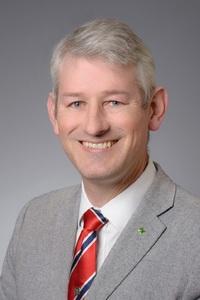The objective of this research is the transformation from static sensing into mobile, actuated sensing in dynamic environments, with a focus on sensing in tidally forced rivers. The approach is to develop inverse modeling techniques to sense the environment, coordination algorithms to distribute sensors spatially, and software that uses the sensed environmental data to enable these coordination algorithms to adapt to new sensed conditions. This work relies on the concurrent sensing of the environment and actuation of those sensors based on sensed data.
Dr. Jonathan Sprinkle is a Professor of Computer Science at Vanderbilt University. From 2007-2021 he was with the faculty of Electrical and Computer Engineering of the University of Arizona, where he was a Distinguished Scholar and a Distinguished Associate Professor. He served as a Program Director at the National Science Foundation from 2017-2019 in the Computer and Information Science and Engineering Directorate, working with programs such as Cyber-Physical Systems, Smart & Connected Communities, and Research Experiences for Undergraduates.













